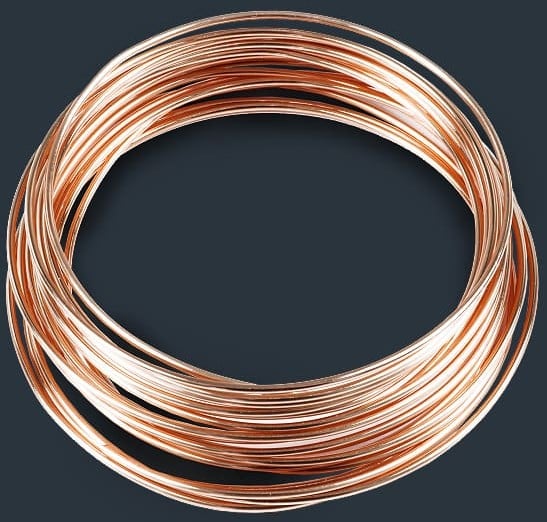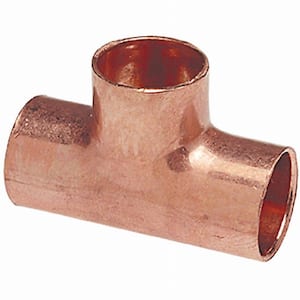Discovering the Health Benefits of Using Copper Products in Everyday Life
Discovering the Health Benefits of Using Copper Products in Everyday Life
Blog Article
Checking Out the Diverse Applications of Copper Products in Modern Industries
Copper products have established themselves as important components throughout a myriad of modern-day industries, largely as a result of their exceptional conductivity, pliability, and resistance to corrosion. From boosting the effectiveness of electrical systems to playing a crucial function in renewable power innovations, the flexibility of copper appears. Moreover, its recyclability placements it as a sustainable selection in manufacturing and electronics. As industries significantly prioritize technology and sustainability, the varied applications of copper require a closer exam, especially concerning their possible influence on future ecological practices and technical advancements.
Electrical Applications of Copper
Copper is a vital product in the electrical industry, representing roughly 60% of the overall demand for non-ferrous steels globally - Copper Products. Its exceptional electric conductivity, which is nearly twice that of aluminum, makes it the preferred selection for a vast array of electric applications. From circuitry systems in household and business buildings to high-voltage power transmission lines, copper ensures efficiency and dependability in electrical energy shipment
Along with wiring, copper is essential to the manufacturing of electric parts such as motors, transformers, and generators. These components leverage copper's thermal conductivity and pliability, crucial for warm dissipation and effective performance. Moreover, copper's resistance to rust enhances the lifespan and longevity of electrical systems, making it a cost-efficient service in the long-term.
The growth of renewable resource sources, such as solar and wind power, has actually additionally enhanced the need for copper in electrical applications. As industries transition in the direction of sustainable power services, copper's duty ends up being much more critical. Generally, the versatility and performance attributes of copper strengthen its condition as a keystone product within the electric market, driving technology and performance throughout different applications.
Pipes and Piping Solutions
In contemporary plumbing systems, the choice of materials significantly impacts both functionality and long life. Copper has actually become a favored option due to its unique buildings, including rust resistance and antimicrobial characteristics. These characteristics guarantee that copper piping remains risk-free and resilient for carrying potable water, an important factor to consider in property and industrial applications.
Among the crucial benefits of copper in pipes is its capability to hold up against heats and stress, making it appropriate for a range of applications, from warm water systems to home heating and cooling networks. In addition, copper's flexibility enables less complicated setup in intricate piping designs, minimizing the risk of leakages and failings.
Another noteworthy advantage is copper's long life expectancy, frequently exceeding 50 years with appropriate upkeep. This durability not just minimizes replacement expenses yet also contributes to lasting practices by minimizing waste. Copper's recyclability aligns with contemporary ecological criteria, advertising a round economic situation within the plumbing industry.
Copper in Renewable Power
The adaptability of copper prolongs past pipes applications, playing an essential role in the renewable energy industry. Its exceptional electric and thermal conductivity makes it a vital material in the manufacturing and distribution of renewable resource sources, especially solar and wind power. In solar panels, copper is used in solar batteries and wiring, promoting efficient power conversion and transmission. Its resistance to rust ensures durable performance, he said which is critical for maximizing power result gradually.

Furthermore, as the worldwide need for electrical cars (EVs) boosts, copper's function in battery systems and billing framework ends up being even much more considerable. The material's capability to perform electrical energy successfully is indispensable to the efficiency of EV batteries, boosting array and charging speed.
Copper's Role in Electronics
Electronics manufacturing relies heavily on copper's outstanding properties, particularly its high electric conductivity and thermal effectiveness. These characteristics make copper a perfect choice for a large range of digital components, including adapters, motherboard, and electrical wiring. The metal's my explanation ability to effectively transmit electric signals makes certain very little power loss, which is crucial in high-performance digital gadgets.
Furthermore, copper's thermal conductivity plays a significant duty in warmth dissipation, securing sensitive parts from overheating. This is specifically essential in modern electronic devices, where compact layouts cause increased warm generation. Copper is additionally favored for its pliability and ductility, enabling it to be conveniently shaped into complex designs that satisfy the demands of sophisticated electronic applications.
With the rise of customer electronics, telecommunications, and electrical lorries, the need for copper in the electronics sector continues to expand. Thus, copper remains a keystone product in the ever-expanding field of electronics.
Ingenious Utilizes in Manufacturing

One significant application is in additive production, where copper-based products are utilized in 3D printing procedures. This enables the creation of lightweight components and complicated geometries, specifically in the aerospace and automotive industries. Additionally, important link copper's thermal conductivity makes it an optimal option for warmth exchangers, boosting effectiveness in commercial air conditioning systems.
Furthermore, the rise of smart manufacturing has actually seen the consolidation of copper in IoT gadgets, where its conductive abilities sustain sophisticated picking up technologies. In the world of sustainable energy, copper is critical in the manufacturing of photovoltaic panels and wind turbines, promoting a lot more effective power conversion and distribution.
As sectors make every effort for sustainability and technology, copper's adaptability and efficiency continue to place it as an essential product, driving advancements in production and adding to the growth of smarter, a lot more reliable items.
Final Thought
In recap, copper products demonstrate exceptional convenience throughout various modern markets. Copper Products. Their premium conductivity boosts electrical applications, while deterioration resistance makes sure reliability in pipes. The important function of copper in renewable energy and its essential feature in electronic devices underscore its significance beforehand sustainable practices. Additionally, ingenious usages in manufacturing emphasize copper's adaptability and sustaining significance. Collectively, these applications highlight copper's essential payment to technological progression and industrial effectiveness in contemporary culture.
From enhancing the performance of electrical systems to playing an essential duty in renewable power innovations, the versatility of copper is noticeable. As industries progressively focus on development and sustainability, the varied applications of copper call for a closer assessment, especially regarding their possible influence on future technical innovations and ecological techniques.
The development of sustainable energy sources, such as solar and wind power, has actually additionally increased the need for copper in electrical applications. Overall, the convenience and performance qualities of copper strengthen its standing as a cornerstone material within the electrical sector, driving innovation and performance throughout different applications.
The versatility of copper prolongs beyond pipes applications, playing an essential role in the eco-friendly power field.
Report this page